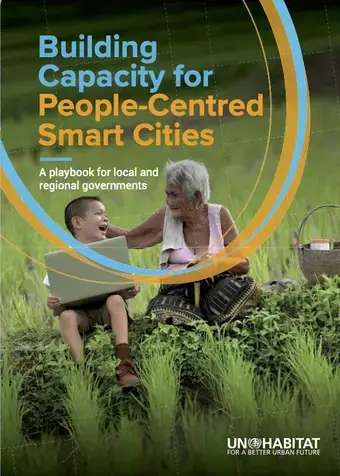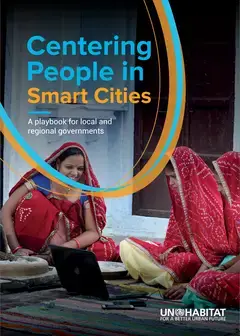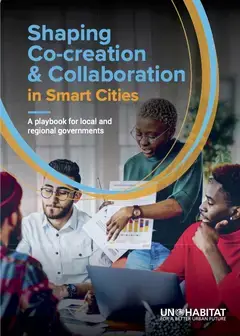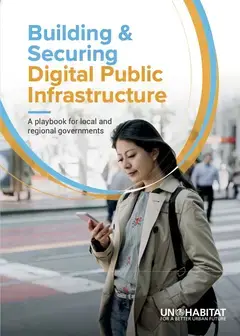
Launched in 2020, UN-Habitat’s flagship programme ‘People-centered Smart Cities’ acknowledges the transformative potential that digital technologies can have for sustainable urban development. Through the people-centered smart cities flagship programme, UN- Habitat provides strategic and technical support on digital transformation to national, regional and local governments.
‘Building capacity for People-Centered Smart Cities” is one of the new playbooks which are key normative components of UN-Habitat’s people-centered smart cities flagship programme. This new serie of playbooks aim to empower local governments to take a multi-stakeholder approach to digital transformation that realizes sustainability, inclusivity, prosperity and human rights for the benefit of all. To that end, local, regional and national governments will find pragmatic guidance for how to develop smart city strategies that are more inclusive, sustainable, and aligned to the actual needs of residents.
Digital transformation is as much a human process as it is digital. Cities today are challenged to adapt to new ways of working, designing and delivering services. In order to achieve modern expectations of fast, convenient and accessible public services, city and regional governments must transform how they operate.
Cities of today need to create interdisciplinary teams to deliver projects, recruit staff with digital skill sets and establish multi-sector partnerships to accomplish their goals. Municipalities increasingly need to build better ICT capabilities, while strengthening digital leadership, widening their knowledge base and promoting new forms of work that support digital transformation.
There are several ways to build digital capacity within an organisation and this playbook outlines three key activities that governments can follow towards maximising outputs while reducing inefficiencies and cost:
- Collaborate with diverse stakeholders to build smart city projects, infrastructure and services
- Expand the capacity of city staff for digital transformation.
- Evaluate the need for technology and address equity, environmental sustainability and inclusion in smart city initiatives.
All these investments must reach a quantifiable return. That’s why establishing key performance indicators (KPIs) for smart cities is vital for organisations to evaluate and demonstrate progress towards their goals.
This Playbook is broken down into three activities that relate to the Capacity Building Pillar of the people-centred smart city approach of UN-Habitat. Each activity includes core values and strategic goals that organizations can adopt to drive forward their people-centred smart city approach. For each goal, UN-Habitat outline a series of actions, recommendations and case studies. Finally, each activity ends with a policy toolkit.




